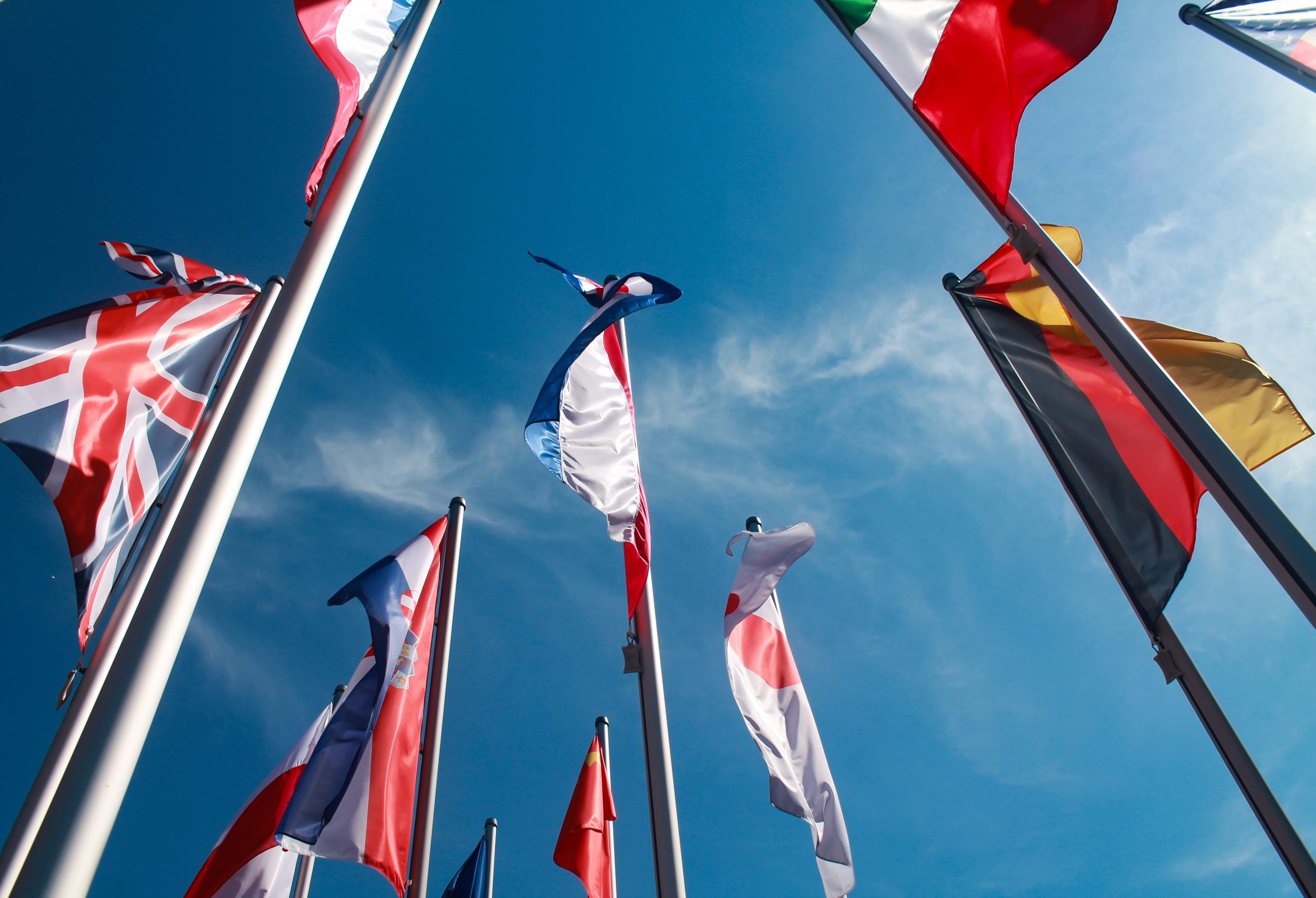What Is Dual Citizenship?
Dual citizenship (also known as dual nationality) is when a citizen of one country can also hold citizenship of another country or countries at the same time without losing their rights to their first citizenship. Different countries have their own rules about whether a citizen is able to hold dual or indeed multiple citizenships.
For example, according to the UK’s official Gov.com website, British citizens are allowed to hold dual citizenship of other countries. However, such countries as China, Montenegro and Poland do not permit dual citizenship although it is possible to obtain residency in these countries. Information can be requested from individual countries’ consulates or embassies, or for speedy, expert advice, contact our team of experts at Astons.
Having dual citizenship can offer many benefits, including personal security (offering a haven in times of danger, social or political unrest or pandemic), tax and investment advantages, property ownership, opening up business opportunities, accessing world-class education and healthcare, the opportunity to learn about another culture, and making travel far easier, offering visa-free access to over 100 countries.
Dual citizenship can in many cases extend to a person’s spouse and children, though this is not always the case. In the UK and USA for example, someone married to a citizen does not automatically become a citizen themselves. Instead they have to apply officially as the spouse of the citizen and acceptance is not guaranteed. However, in the UAE the spouse of a UAE citizen can become a citizen provided certain requirements are met, while an Iranian woman automatically becomes an Iranian citizen on marriage to an Iranian man.
There are currently 74 countries around the world who allow more than one citizenship. Below, our comprehensive cover all aspects of dual nationality, giving information on which countries allow dual and multiple citizenships and those countries’ requirements.
Which Countries Allow Dual /Multiple Citizenship?
Asia
Bangladesh – Dual citizenship is permitted under limited circumstances, primarily if the person applying is of Bangladeshi origin. Available to citizens of the UK, USA, Australia, Canada and Europe if of Bangladeshi origin, who can apply for a Dual Nationality Certificate under which they are able to have Bangladeshi Citizenship in addition to that of their own country. Wives are not automatically included but can make their own application for the Certificate.
Bahrain – Citizens of other countries are allowed dual nationality with Bahrain on receipt of an investment. However Bahrain’s own citizens are not permitted to have dual citizenship.
India – Dual citizenship not officially permitted, however India permits an Overseas Citizenship of India program for Indian nationals living abroad who become citizens of other countries. These people do not have voting rights.
Indonesia – Dual citizenship only allowed to children under 18. Once over this age they must swear an affidavit confirming their dual nationality and once they reach 21 they must choose which nationality to accept.
Egypt – Allows dual citizenship upon application to the Ministry of the Interior. Children up to the age of 21 are included but must submit separate applications. Wives and children over the age of 21 must submit their own applications. Processing time for dual citizenship applications is approximately 3-4 months.
Israel – Allows dual citizenship, especially encouraged if the applicant is of Jewish origin. There are three restrictions on dual citizenship. It is not allowed if the applicant holds citizenship of an enemy country; not allowed for members of the Knesset (Israeli Parliament) or anyone who occupies a position sensitive to Israel’s security; and those with dual citizenship must enter and leave Israel using their Israeli passport.
Pakistan – Allows dual citizenship with 19 countries – UK, France, Italy, Belgium, Iceland, Australia, New Zealand, Canada, Finland, Egypt, Jordan, Syria, Switzerland, Netherlands, USA, Sweden, Ireland, Bahrain, Denmark, Norway, plus children of Pakistani parents, born in Germany, who have German passports. However, Pakistani citizens who do not live in the country must renounce their Pakistani passports if they are taking another country’s nationality. Children who are born abroad but have Pakistani parents, can retain dual nationality until the age of 21 but must renounce their foreign citizenship if they wish to retain their Pakistani citizenship.
Philippines – Dual citizenship is available in the following cases: for a natural-born Filipino; for a natural-born Filipino who is re-acquiring their citizenship while holding foreign citizenship; people born outside the Philippines who have a Filippino parent. However, dual citizenship is not allowed for foreigners or those who have become citizens of the Philippines by naturalisation.
Singapore – Dual citizenship only available to Under 18s born of a Singapore citizen and a citizen of another country. Once they read 18 years of age they must choose one citizenship only.
South Korea – Dual citizenship is only available under certain circumstances – as the spouse of a Korean person; if the applicant has made a great contribution to the country; if they are outstanding in a certain field – for example science, sport, the economy or culture; or if the person cannot give up the passport of their country because of the laws of that country. Natural-born South Koreans who have given up their citizenship of the country can also reinstate it under some conditions. Other than in the above circumstances it is not permissible to obtain dual citizenship.
Sri Lanka – Dual citizenship is only allowed for people who have previously lost their Sri Lankan citizenship on becoming and citizen of another country, and wish to regain their Sri Lankan citizenship. They must apply to the government who have the discretion to refuse.
Syria – It is not easy for foreigners to obtain dual citizenship in Syria as there is a requirement to marry a Syrian citizen and live in the country for 10 years. However, Syrian nationals can obtain dual citizenship.
Africa
Algeria – Dual nationality is permissible for Algerian citizens and for foreign nationals, with no requirement to relinquish citizenship of the country of birth.
Angola – Ambivalent about dual nationality. It is not prohibited but the other nationality possessed by an Angolan citizen is not seen as applicable while in Angola. A child of Angolan parents, if born in a foreign country, may retain citizenship of both countries until they reach the age of 18, at which time they must choose either Angolan or the foreign country’s citizenship.
Benin – Dual citizenship allowed with the permission of authorities.
Malawi – Malawi’s citizens by birth or descent are permitted to have dual citizenship, with a requirement to report this to the Government of Malawi. However those who obtained citizenship of Malawi through naturalisation are not permitted to take dual citizenship.
Nigeria – Dual citizenship is permitted for citizens of Nigerian origin. However the country does not allow persons who have been naturalised in another country to obtain naturalisation in Nigeria.
South Africa – Dual citizenship is allowed for South African nationals with confirmation of South African citizenship status being gained first from the South African department of Home Affairs. The South African passport must be used when entering and leaving South Africa.
United Arab Emirates – Dual citizenship is only permitted where a child is born in another country but has a father who is a UAE citizen.
Europe
Albania – Dual citizenship is permitted for both Albanian citizens and citizens of other countries.
Armenia – Dual citizenship is permitted in Armenia, however Armenian nationals with dual citizenship are regarded as Armenian only. Foreign citizens are allowed to obtain dual nationality with Armenia.
Austria – Dual citizenship is only permitted under the following circumstances: for children of one Austrian parent and one parent from another country; for those who are unable to relinquish their previous citizenship; for children of Austrian parents who are born in another country and thus gain that country’s nationality; professors from other countries, who are granted honorary Austrian status.
Belgium – Dual citizenship is permitted without restriction, both for Belgian nationals and for citizens of other countries.
Bosnia & Herzegovina – Dual citizenship is only permitted where there is an agreement with another country. Presently agreements only exist between Bosnia & Herzegovina and Croatia, Serbia and Sweden.
Bulgaria – Dual citizenship is permitted to citizens of Bulgaria and their spouses; EU citizens; or a member of the Agreement of the European Economic area or of Switzerland; for citizens of countries who are party to a reciprocal arrangement, and to people who hold international protection status. Naturalised citizens who do not fulfil the above criteria are required to renounce their other citizenships on obtaining Bulgarian nationality.
Croatia – Dual citizenship is permitted. However, for those who have obtained citizenship of Croatia by naturalisation, they must renounce their other citizenships in order to become a citizen of Croatia, except where they are the descendants of Croatian or previously had to give up their Croatian status as a condition of working in other countries.
Cyprus – Dual citizenship is allowed for Cypriot citizens and for those of other countries.
Czech Republic – Dual citizenship is allowed for Czech citizens and for those of other countries. The Czech government retains a register of all citizens who have additional citizenships.
Denmark – Allows dual citizenship for Danish nationals without a requirement to report it to the authorities, and the same for citizens of other countries.
Finland – Dual citizenship is allowed without restrictions or reporting requirements, for both Finnish citizens and those of other countries.
France – Dual citizenship is allowed for French citizens without reporting requirements, and for those from other countries upon reporting their other citizenships to the French authorities.
Germany – Dual citizenship is somewhat restricted. It is permitted for German citizens under certain circumstances but permission has to be obtained first from the German authorities to prevent the German citizenship being lost. This loss of German citizenship would not, however, apply if the second citizenship was being sought from Switzerland or an EU state, or from a country with whom Germany had signed a treaty. There are several circumstances under which dual citizenship is allowed.
These are: if the dual citizenship is taken at birth in addition to a second citizenship from a parent who is foreign; if the dual citizenship is taken at birth through both parents being foreign. At least one parent has to have lived regularly in Germany for over 8 years and has to have unlimited permission to stay; in the case of the applicant being a naturalised German citizen where the other state will not allow them to withdraw their citizenship of that state, or if the disadvantages of withdrawing that citizenship are too high, or if the person is a refugee.
Greece – Dual citizenship is permitted without restriction or reporting.
Hungary – Dual citizenship is permitted without restriction or reporting.
Iceland – Dual citizenship is permitted without restrictions.
Ireland – Dual citizenship is permitted without any conditions and is extended to anyone around the world who has Irish ancestors.
Italy – Allows its citizens to hold dual nationality without restrictions.
Kosovo – Allows dual citizenship and many Kosovans hold a specially-issued Serbian passport as Serbia does not recognise Kosovo as an independent country. Dual citizenship in general is permitted without restrictions.
Latvia – Allows dual citizenship with certain countries and must be registered with the Latvian authorities. Permitted countries are: member countries of the EU, EFTA and NATO and additionally Australia, New Zealand and Brazil. Otherwise permission must be obtained from the Latvian Cabinet of Ministers, or upon gaining citizenship through marriage or adoption.
Luxembourg – Dual citizenship is allowed, free of restrictions.
Malta – Malta allows dual citizenship without restrictions.
Montenegro – Only allows dual citizenship for foreign nationals who become Montenegrin citizens by investment. Montenegrin nationals are not allowed dual citizenship.
Netherlands – Dual citizenship only allowed under restricted circumstances: for some Dutch nationals who become citizens of other countries through marriage or at birth.
Norway – allows dual citizenship only under certain circumstances: where a person automatically became a Norwegian citizen and a citizen of another country at birth and the parents did not specifically apply or take any other action for the child to become a citizen of the other country; where the person is unable to relinquish the citizenship of another country; where the person is unable to contact the authorities of the other country as it will endanger their personal safety; where the authorities of the other country set stipulations or fees for release of citizenship that are considered unreasonable.
Portugal – Allows dual citizenship without any restrictions.
Romania – Allows dual citizenship without any restrictions.
Russia – Allows dual citizenship if there is a treaty on dual citizenship with another state, but the Russian authorities must be notified. If a Russian citizen acquires a passport from another country where there is not a treaty in existence this is regarded as having a second passport rather than a dual nationality. However, having a second passport does not require the person to give up their Russian nationality.
Serbia – Allows dual citizenship providing the applicant fulfils the criteria of becoming a Serbian citizen.
Slovenia – Citizens born in Slovenia may acquire dual nationality, however naturalised Slovenian citizens must usually relinquish the other country’s passport.
Spain – Allows dual citizenship only if you come from a limited number of Ibero-American countries, former colonies and associated countries as follows: Andorra, Argentina, Bolivia, Brazil, Chile, Colombia, Costa Rica, Cuba, Dominican Republic, Equatorial Guinea, Ecuador, Philippines, Guatemala, Honduras, Mexico, Nicaragua, Panama, Paraguay, Peru, Portugal, Puerto Rico, El Salvador, Uruguay, Venezuela, France.
Sweden – Dual citizenship is permitted without restrictions.
Switzerland – Dual citizenship is permitted. Upon gaining another citizenship a Swiss national is not required to give up their Swiss citizenship unless the other state does not allow dual citizenship. Swiss citizens who are not living in Switzerland must register with the authorities to hold a place on the Register of Swiss Abroad.
Turkey – Permits dual citizenship with the requirement that the applicant must be properly registered with the Turkish authorities. Dual nationals do not have to use their Turkish passport to enter or leave the country. Foreign nationals applying for Turkish citizenship must disclose their original citizenship to the relevant authorities.
UK – Dual citizenship permitted with no restrictions and no requirement to register with the authorities.
North and South America
Belize – Dual citizenship is permitted without restrictions.
Bolivia – Dual citizenship is permitted.
Canada – Allows dual citizenship without restrictions.
El Salvador – Citizens born in El Salvador may obtain dual citizenship. However, naturalised citizens may not hold more than one nationality.
Mexico – Allows dual citizenship. However the Mexican authorities will always consider a Mexican national with dual citizenship to be Mexican and they are required to enter and leave the country on their Mexican passport.
Panama – Has an ambiguous approach to dual nationality. Officially it is not permitted and when a person becomes a Panamanian citizen they are required to swear an oath that renounces their previous citizenship. However, the USA and many other countries do not recognise the oath as constituting law and so citizens often retain their previous citizenship. Panamanian citizens who take on another citizenship are required to give up their Panamanian citizenship. People born in other countries who have a right to Panamanian citizenship through having Panamanian heritage, do not have to relinquish their other citizenship but also cannot renounce their Panamanian citizenship.
USA – Dual nationality is permitted but the applicant has to declare any other allegiances to the authorities.
Caribbean
Antigua & Barbuda, St.Kitts & Nevis, Dominica, Grenada, St.Lucia – Dual citizenship is permitted without restrictions.
Barbados – Allows dual citizenship without restrictions.
Costa Rica – Dual citizenship is permitted without restrictions.
Jamaica – Dual citizenship is permitted without restrictions.
South America
Argentina – Dual citizenship permitted. However, Argentina only recognises dual nationals when they are physically in Argentina, and they must use their Argentinian passport when entering or leaving the country, except when visiting the country using a passport of a country with whom Argentina has agreed a reciprocal agreement.
Bolivia – Dual citizenship is permitted without restriction except for people with criminal records in or outside of the country, or who have stayed illegally in Bolivia.
Brazil – Dual citizenship is permitted if the person has automatic citizenship of the country, for example by being born there or having a Brazilian parent, or if the other country requires the person to take naturalisation in order to remain there or exercise civil rights there. If none of those circumstances apply, the Brazilian government has the right to revoke Brazilian citizenship, but this is rare and has to be personally requested or in exceptional circumstances. Foreign nationals who wish to become Brazilian citizens, need to be a citizen of their country by descent or other merit and not by naturalisation. Naturalised Brazilians are however, able to keep their original citizenship.
Chile – Dual citizenship is permitted without restrictions or registration.
Peru – Dual citizenship is generally allowed in Peru. Peruvian nationals who are born in the country do not have to renounce their Peruvian citizenship when taking on an additional citizenship, unless they choose to do so by declaring a renunciation of citizenship before the Government authorities. However, someone who has received Peruvian nationality by naturalisation does not enjoy the same legal status in Peru as natural born Peruvians if they take on Peruvian citizenship as well as retaining their own previous citizenship. Peru does have an agreement with Spain whereby Peruvian and Spanish citizens in each other’s countries share the full legal rights of that country.
Oceania
Australia – Dual citizenship is permitted without restrictions. An Australian with dual or multiple citizenships must abide by Australian laws within Australia and holds the same rights and privileges as Australians who have sole citizenship.
New Zealand – New Zealand allows dual or multiple citizenship without restrictions. A citizen of New Zealand can only relinquish their citizenship if they are already citizens of another country.
Tanzania – Dual citizenship is only permitted when a Tanzanian woman marries a citizen of another country
Vanuatu – Dual citizenship is permitted, with the stipulation that people enter and exit the country on the Vanuatu passport.
How Many Citizenships Can A Person Have?
Depending on the person’s country of origin, it is possible to carry multiple citizenships. Different countries have different rules about how many citizenships their nationals are allowed to have. Consulates and embassies can give information on their country’s rules or for specialist advice, contact our team of international experts at Astons.
The optimum amount of dual nationalities will vary from person to person depending on the reasons for requiring more than one citizenship. In some cases it will be for family reasons, for example if relatives came originally from another country, holding dual nationality would make it easier to travel to see family or to relocate to join relatives, in which case there would usually only need to be two nationalities – that of the country of birth and that of the family’s country of origin. However in the case of investments or business interests, the individual may want to take multiple nationalities in order maximise and spread their portfolio.













